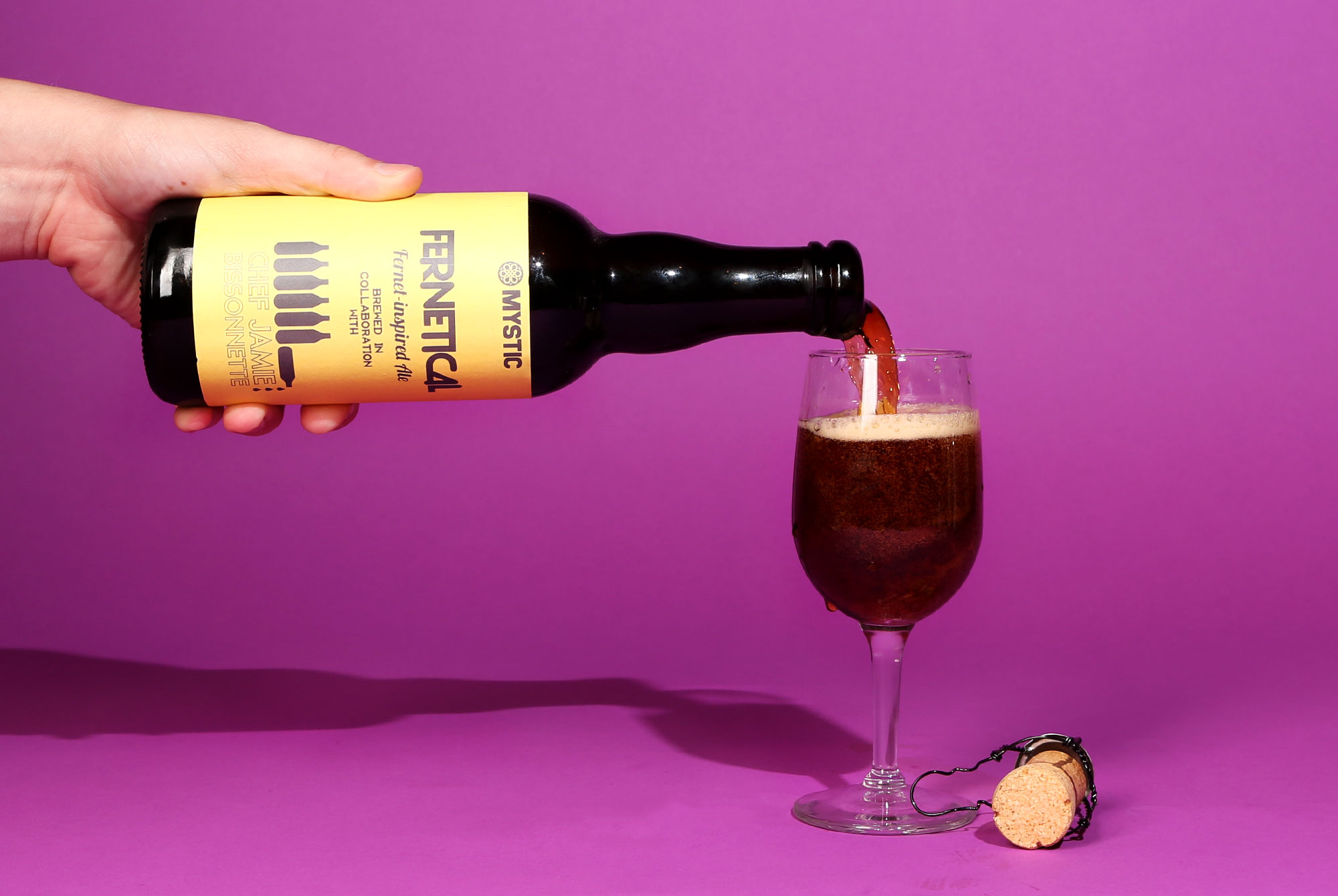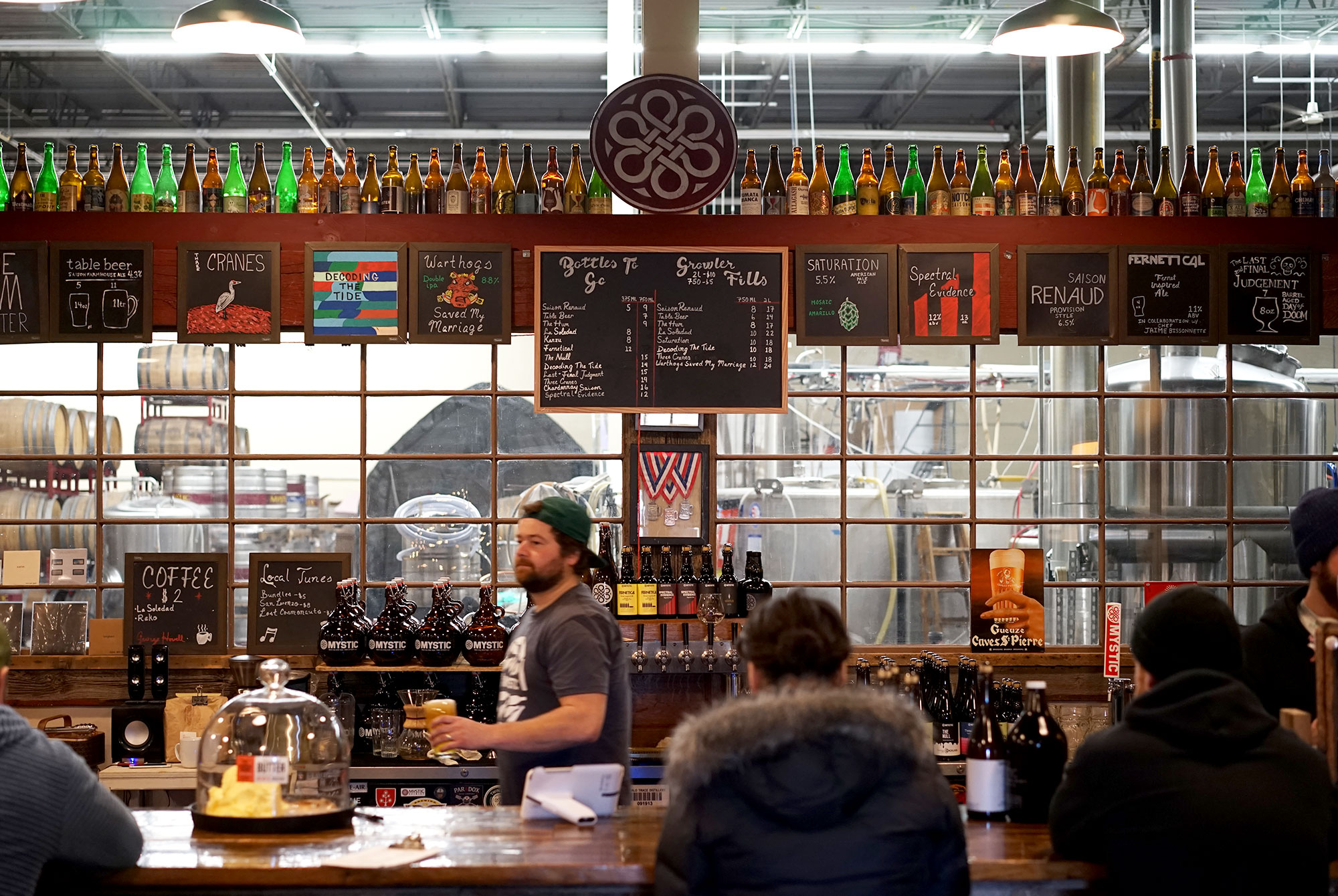Shop
From the Cellar: Mystic Fernetical
Like a glass of Christmas.
“From the Cellar” is an editorial project that publishes every other Friday with a beer from Hop Culture’s cellar. Have a vintage bottle or cellared beer you think we should try? Drop us a line at [email protected] with the subject line “From the Cellar.”
Fernetical at a glance:
- Fernetical is a fernet-inspired spice ale brewed by Mystic Brewery in Boston, Massachusetts.
- The beer was released in 375 ml bottles in the fall of 2016. This bottle has been in the Hop Culture cellar since early 2017.
- Fernetical was brewed in collaboration with James Beard Award-winning chef Jamie Bissonnette of Toro Boston, Toro NYC, and Coppa Boston.
The Story:
Over the past 10 years, Boston’s beer scene has shifted, morphed, and evolved. Stalwarts like Cambridge Brewing Co., Night Shift Brewing Co., and Notch Brewing, have supplied the Boston area with high quality, traditional beers that speak to a modern drinker. More recent additions like Trillium Brewing Co., Vitamin Sea Brewing, and Lamplighter Brewing Co. have brought a youthful energy and embraced new school brewing philosophies. Mystic sits curiously in the middle.
I spent four years of my young adult life in Boston, so I have a fondness for the beer and food scene in Beantown. Mystic was a particular favorite of mine; I liked to keep a bottle of Table Beer stashed in my refrigerator at all times. Three Cranes remains one of my favorite beers. However, in the past couple of years, there was a distinct and palpable change in Mystic’s process. Suddenly, the brewery that had exclusively produced farmhouse ales was dabbling in hazy IPAs and pastry stouts. The change didn’t erase the commitment to quality saisons, but it brought in a new audience and new focus to the East Boston brewery. Hop Culture even published an article describing the deftness with which Mystic folded sexier beers into its portfolio.
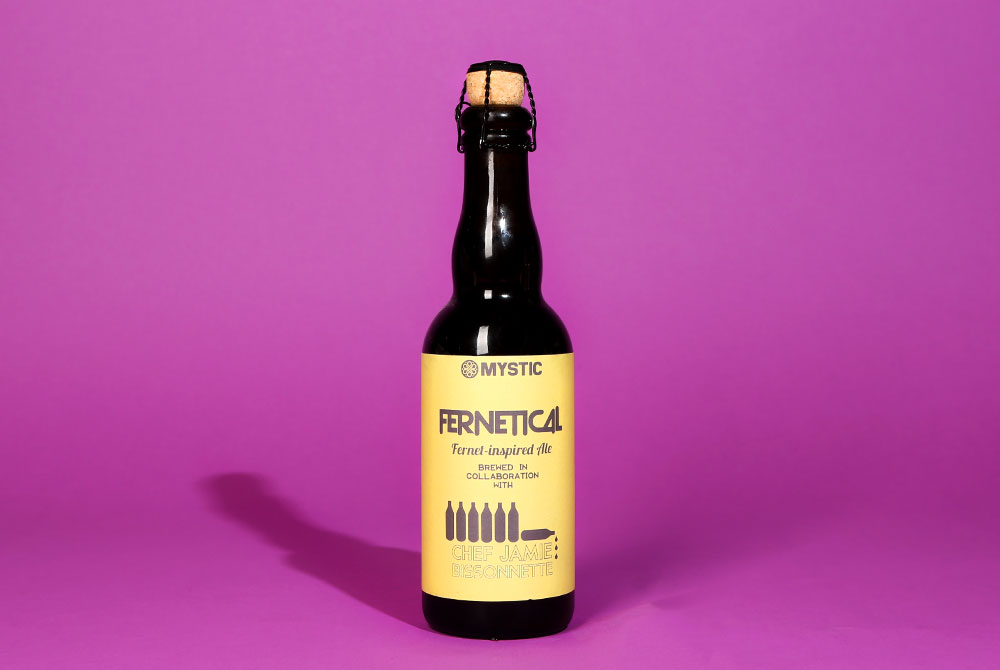
When I came across a bottle of Mystic Fernetical in the Hop Culture cellar, it felt like discovering a relic. Fernetical was a pre-lactose, pre-double dry-hopped Mystic beer. Mystic’s hazy IPAs are delicious, well-made beers, but Saison Renaud or Fernetical might not have brought long lines on release day. The proof is on Untappd: Table Beer has a 3.59/5, while Post Apocalyptic Xanadu has a 4.2/5. Fernetical sits at a 3.58. Despite the lack of love on internet rating apps, beers like Table Beer, Mary Of The Gael, and Field Studies remain favorites of mine. And while I’m a big fan of their newer hazy IPAs, re-discovering a beer like Fernetical brought some pleasant nostalgia.
Mystic founder Bryan Greenhagen commented on the reception of his fernet-inspired experiment, saying, “People who are into fernet thought we nailed it. People who aren’t into fernet pretty much reacted like most people do to fernet the first time they try it: ‘WTF?’ And ‘Why would you make something that tastes like this!?'” One particularly illuminating Untappd comment reads, “Wow, this is amazing and spot on. I never want to drink it again though.”
Greenhagen didn’t necessarily set out to recreate a fernet in beer form, but the brewery had been experimenting with unique beer styles.
“We used to do experiments with un-hopped herbed beers (Gruits) and thought we might be able to pull off an herbal-based, intense concoction like amaro,” he shared. The collaboration with chef Jamie Bissonnette came soon after.
“We saw [Bissonnette] served a flight of different fernets at his restaurant Coppa and we went down to check it out,” Greenhagen said. “I decided it would be an interesting challenge to see if we could make a beer with the flavor profile of fernet and he was into the idea.”
Greenhagen’s expertise was in old-world beer styles, so he leaned on Bissonnette for the bitter liqueur know-how.
“Jamie knows a lot about fernet and has visited fernet producers,” Greenhagen said. “He had excellent insights into what actual herbs might give the right profile. Some of the ingredients were a suprise. The addition of black cardamom in that beer was brilliant.”
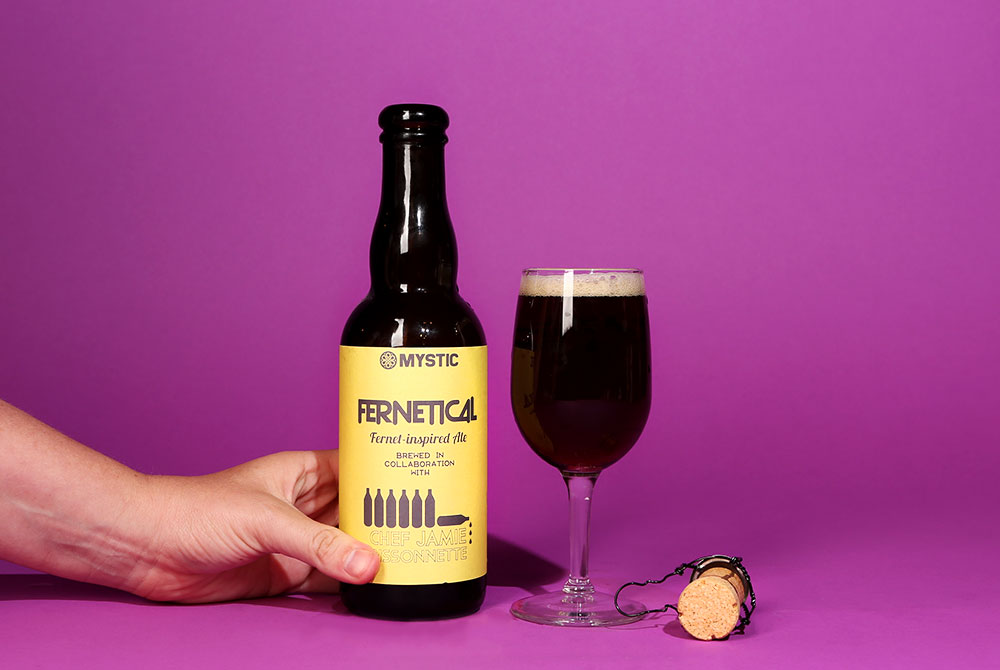
I actually had this beer around the time it was initially released and I remember liking it, but I didn’t immediately fall in love with it. I’ve had plenty more Amaro since then so I may have been more prepared this time around. The varied reception to this beer is a good indicator of the flavor preferences of the modern beer drinker. Folks more or less know what to expect from an IPA, even within the range of piney and bitter to juicy and soft. But unless you’ve had your fair share of fernet or happen to be a huge fan of black licorice, Fernetical might rub you the wrong way. But Greenhagen and Bissonnette succeeded; having this beer after a few years was a pleasant, nostalgic reminder that Mystic produces excellent and creative beers.
What Fernetical is like:
- Pours a rich, syrupy amber with a thin head.
- Smells immediately like fernet, along with some candy cane notes.
- From the first sip you know you’re drinking fernet. “It’s so much,” was said by a friend at one point.
- The taste develops from sweet to an herbal bitterness. It has a light, still body.
- As we sipped, we got minty medicinal flavors that, like the candy cane, reminded us of winter nights.
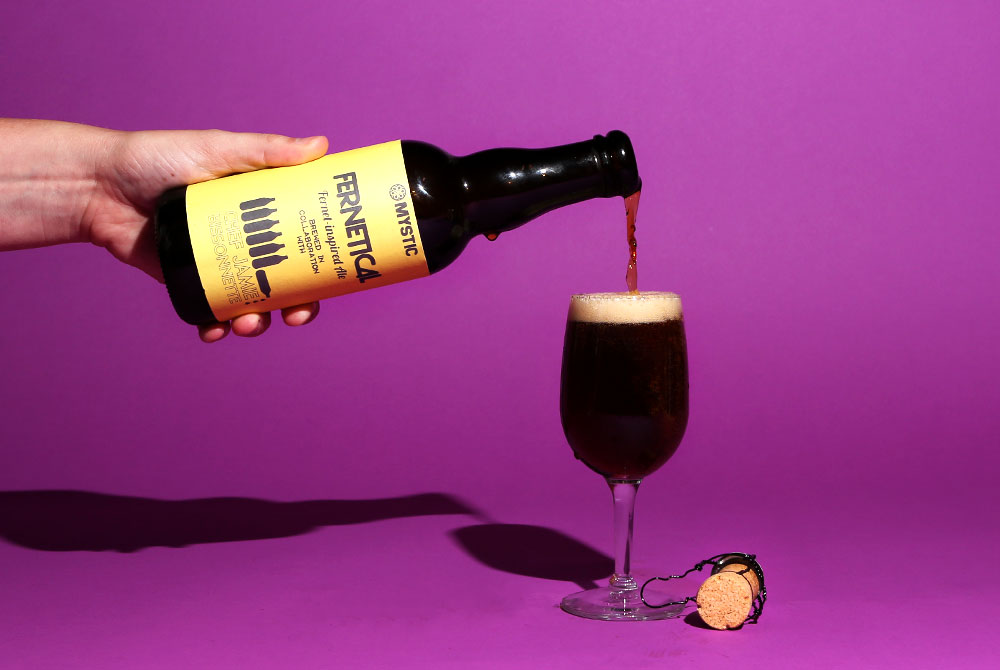
Final Thoughts:
I almost wish I had saved this one for a few more months. It’s a perfect cold-weather beer, ideal for Christmastime, with licorice, mint, and bitter liqueur flavors. Plus, age has not detracted from the flavor profile of Fernetical. As Greenhagen muses, “Maybe all those herbs preserved it forever.”
Sadly, no bottles remain of this beer so if you happen across one, snatch it up. Greenhagen shared that he’s considered brewing it again or experimenting with other unique beer concoctions, but Mystic doesn’t have the time for it.
“Since our brewery is at capacity we struggle to get out experimental beers when we can keep up with the IPAs.”
Fernetical may not have wone over the drinking audience at large but it represents a specific moment in the brewery’s history and remains a fantastic example of the creativity on display at Mystic.
Liked this article? Sign up for our newsletter to get the best craft beer writing on the web delivered straight to your inbox.

